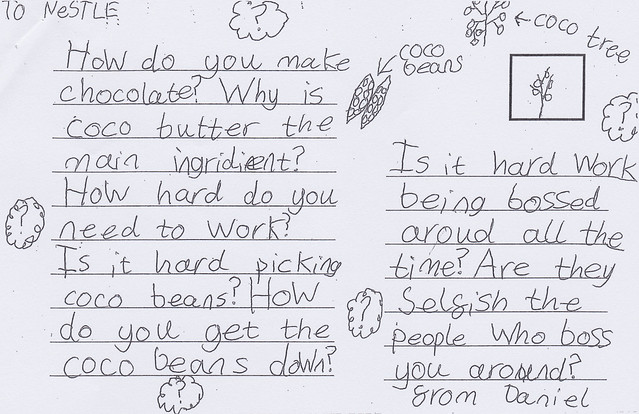Category: gelatin
Video: how pig parts make the world turn.
We love the work of Dutch artist Christien Meindertsma, and have drawn on her work to explain what the ‘follow the thing’ approach is all about, and how to do it well on our Classroom Resources page. We were reminded of her work today in a seminar in the Exeter Geography series by Ray Chan called “Capitalist pigs: politics of meat production and animal diseases in China.” We’re posting her 2010 TED talk today because it’s awesome. Enjoy!
I think that, in order to take better care of what’s behind our products — so, the livestock, the crops, the plants, the non-renewable materials, but also the people that produce these products — the first step would actually be to know that they are there.
Christian Meindertsma 2010 | TED Talk
What happens along supply chains when we keep to our New Year’s Resolutions?
We’re interested in Resolutions here at followthethings.com HQ. They inevitably have impacts on others elsewhere. Who welcomes them? Who worries about them? Here’s what UK restaurant critic Grace Dent says about going vegan, at least for the month of January (a.k.a. ‘Veganuary’). Dairy farmers are worried.
Guest blog | Milkybar buttons & child slavery: primary children write to Nestle
This is the latest in our #followtheteachers series. In December last year, Ian was contacted ‘out of the blue’ by Joe Lambert, a trainee teacher at Montgomery Primary School in Exeter who had been an undergraduate Geography student at Exeter University, where Ian works and where followthethings.com is based. Would Ian be interested in working with him and the school’s 7-9 year old (Year 3 and 4) students, who were following food the following month? Yes was the answer. Here’s what happened, as described by Joe.  After hearing geography was the key focus of the first few weeks of the January term, my ears immediately pricked. A geography graduate rarely gets an opportunity to use his degree but when he does you know he is going to relish it! My interests were further stoked when the topic was narrowed to identifying where does our food come from? This was the wonderful, crystallising moment when you realise maybe paying attention in the 1st year of your degree was worthwhile. Continue reading
After hearing geography was the key focus of the first few weeks of the January term, my ears immediately pricked. A geography graduate rarely gets an opportunity to use his degree but when he does you know he is going to relish it! My interests were further stoked when the topic was narrowed to identifying where does our food come from? This was the wonderful, crystallising moment when you realise maybe paying attention in the 1st year of your degree was worthwhile. Continue reading
